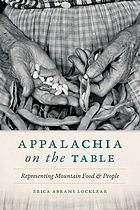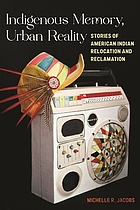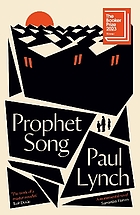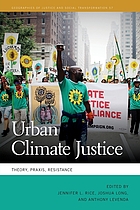Here is The Friday List! Every week, new books are arriving at RLB Library and to keep you up-to-date on what has come in, we’ll be posting the most recent 30 days of arrivals every Friday. The link below will take you to a catalog listing so that you can explore and find titles that interest you. Be sure to check back regularly to see what else has arrived!
THE FRIDAY LIST
If you want some ideas on what to read, here are some highlights:

Appalachia on the table : representing mountain food and people, Erica Abrams Locklear, 2023
When her mother passed along a cookbook made and assembled by her grandmother, Erica Abrams Locklear thought she knew what to expect. But rather than finding a homemade cookbook full of apple stack cake, leatherbritches, pickled watermelon, or other “traditional” mountain recipes, Locklear discovered recipes for devil’s food cake with coconut icing, grape catsup, and fig pickles. Some recipes even relied on food products like Bisquick, Swans Down flour, and Calumet baking powder. Where, Locklear wondered, did her Appalachian food script come from? And what implicit judgments had she made about her grandmother based on the foods she imagined she would have been interested in cooking? Appalachia on the Table argues, in part, that since the conception of Appalachia as a distinctly different region from the rest of the South and United States, the foods associated with the region and its people have often been used to socially categorize and stigmatize mountain people. But rather than investigate the actual foods consumed in Appalachia, Locklear instead focuses on the representations of foods consumed, implied moral judgments associated with those foods, and how those judgments shape reader perceptions of those depicted. The question at the core of Locklear’s analysis asks: how did the dominant culinary narrative of the region come into existence and what consequences has that narrative had for people in the mountains?

Indigenous memory, urban reality : stories of American Indian relocation and reclamation, Michelle R Jacobs, 2023
Drawing on ethnographic research, this book explores different experiences of urban Native identity across two pan-Indian communities in NE Ohio. In addition to elucidating how false memories of Indian-ness invisibilize and overwrite the stories and identities of urban Indigenous people, this research reveals the significance of continuous relations with tribal nations to the persistence of Indigenous peoples and perspectives in twenty-first century US society.”In the last half century, changing racial and cultural dynamics in the United States have caused an explosion in the number of people claiming to be American Indian, from just over half a million in 1960 to over three million in 2013. Additionally, seven out of ten American Indians live in or near cities, rather than in tribal communities, and that number is growing. In Indigenous Memory, Urban Reality, Michelle Jacobs examines the new reality of the American Indian urban experience. Drawing on ethnographic research conducted over two and a half years, Jacobs focuses on how some individuals are invested in reclaiming Indigenous identities whereas others are more invested in relocating their sense of self to the urban environment. These groups not only apply different meanings to indigeneity, but they also develop different strategies for asserting and maintaining Native identities in an urban space inundated with false memories and fake icons of “Indian-ness.” Jacobs shows that “Indianness” is a highly contested phenomenon among these two groups: some are accused of being “wannabes” who merely “play Indian,” while others are accused of being exclusionary and “policing the boundaries of Indianness.” Taken together, the interconnected stories of relocators and reclaimers expose the struggles of Indigenous and Indigenous-identified participants in urban pan-Indian communities. Indigenous Memory, Urban Reality offers a complicated portrait of who can rightfully claim and enact American Indian identities and what that tells us about how race is “made” today.

Prophet song, Paul Lynch, 2023
On a dark, wet evening in Dublin, scientist and mother-of-four Eilish Stack answers her front door to find the GNSB on her doorstep. Two officers from Ireland’s newly formed secret police want to speak with her husband, Larry, a trade unionist for the Teachers’ Union of Ireland. Things are falling apart. Ireland is in the grip of a government that is taking a turn towards tyranny. And as the blood-dimmed tide is loosed, Eilish finds herself caught within the nightmare logic of a collapsing society assailed by unpredictable forces beyond her control and forced to do whatever it takes to keep her family together. Exhilarating, terrifying, propulsive and confrontational, Prophet Song is a work of breathtaking originality and devastating insight, a novel that can be read as a parable of the present, the future and the past.

Urban climate justice : theory, praxis, resistance, Edited by Jennifer L Rice et al., 2023
Arguing that climate injustice is one of our most pressing urban problems, this edited volume explores the possibilities and challenges for more just urban futures under climate change. From displacement within cities through carbon gentrification, to the increasing securitization of elite spaces for climate protection, climate justice and urban justice are intimately connected. Authors in the volume build theoretical tools for interrogating the root causes of climate change, as well as policy failures. Authors also highlight knowledge produced with communities already seeking transformative change and demonstrate meaningful learning from activist groups working to address the socio-natural injustices of climate change impacts. The editors’ Introduction situates our current climate emergency within historical processes of colonization, racial capitalism, and heteropatriarchy, while the editors’ Conclusion offers pathways forward through abolition, care, and reparations. Where other books focus on the project of critique, this collection advances real world politics to help academics, practitioners, and social justice groups actually imagine, create, and enact more just urban futures under climate change.